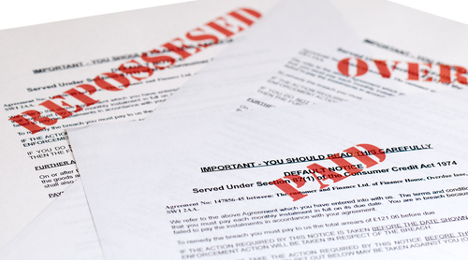CFPB & FTC to Host Day-Long Roundtable on Debt Collection

By subscribing, you agree to receive communications from Auto Remarketing and our partners in accordance with our Privacy Policy. We may share your information with select partners and sponsors who may contact you about their products and services. You may unsubscribe at any time.
LONG BEACH, Calif. –
About a month after conducting a field hearing focused on auto finance, the Consumer Financial Protection Bureau, along with its regulatory colleagues from the Federal Trade Commission, is turning its attention to the debt collection industry — in particular, the Latino community.
CPFB and FTC officials will co-host a roundtable to examine how debt collection and credit reporting issues affect Latino consumers, especially those individuals who have limited English proficiency.
The agencies highlighted the event, titled “Debt Collection & the Latino Community,” will bring together consumer advocates, industry representatives, state and federal regulators, and academics to exchange information on a range of issues. The day-long event is set for Oct. 23 in Long Beach, Calif.
Topics will include:
— An overview of the Latino community, their finances, and the collectors who contact them
— Pre-litigation collection from Latino consumers
Subscribe to Auto Remarketing to stay informed and stay ahead.
By subscribing, you agree to receive communications from Auto Remarketing and our partners in accordance with our Privacy Policy. We may share your information with select partners and sponsors who may contact you about their products and services. You may unsubscribe at any time.
— The experience of limited English proficiency Latinos in debt collection litigation
— Credit reporting issues among limited English proficiency Latinos
— Developing improved strategies for educating and reaching out to limited English proficiency Latinos about debt collection
Participants on tap to be a part of the roundtable include a wide array of consumer-assistance advocates and experts as well as Robert Foehl, who is vice president and general counsel for ACA International.
On Tuesday, ACA International’s board of directors sparked some discussion by issuing a statement regarding the regulation of debt collection attorneys’ litigation activities.
“Our individual rights and freedoms under the law depend upon an independent judiciary — independent not only of the legislative and the executive branches, which the judiciary checks and balances, but also of political parties, moneyed interests and popular majorities,” officials from one of the largest trade groups for the credit and collection industry said.
“Since at least the 19th century, the exclusive right to regulate lawyers has been vested in the judicial branch of our government,” they continued. “The courts have exercised that power responsibly and effectively throughout that time.”
After looking back through history, ACA International moved on to what the organization contends is happening now.
“Recently, though, some federal agencies have begun treading upon the separation of powers by trying to regulate the litigation activities of lawyers who turn to the courts in order to help recover unpaid consumer debts. The right to petition for redress through the courts is a constitutional right guaranteed by the First Amendment, and the courts are fully empowered to make sure that the right is exercised in a fair and just manner for all the parties to each lawsuit,” officials said.
“Lawyers are officers of the court who must answer to the court for the way that they conduct litigation. There is absolutely no basis for executive-branch regulators (or any actors in the executive or legislative branch), who are not judicial officers and who operate outside the court’s control, to intrude themselves into litigation between private parties for which a judge is already presiding,” they went on to say.
Perhaps referencing what Foehl might mention in his appearance at the debt collection event, ACA International closed its latest statement by making its position clear in light of potential legislation being debated in the U.S. Senate.
“ACA International strongly opposes such interference by the executive branch (or, for that matter, the legislative branch) with the workings of our justice system,” officials said. “To that aim, ACA supports Senate Bill 2328, which would expressly exempt from the Fair Debt Collection Practices Act the litigation activities — and only the litigation activities — of lawyers who invoke their clients’ constitutional right to petition the courts for the recovery of unpaid and overdue consumer debt.”


